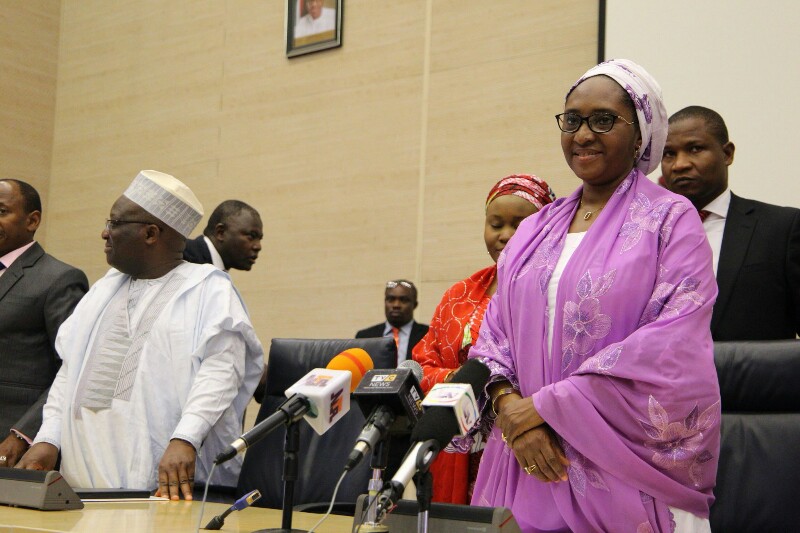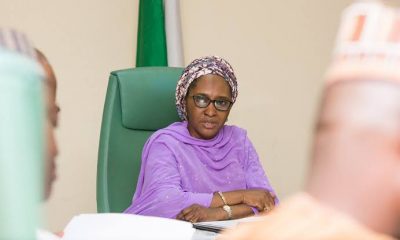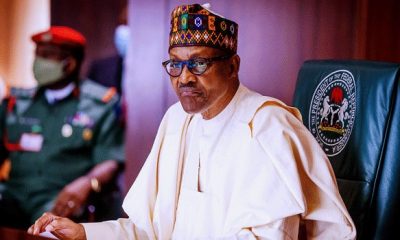Inside Nigeria
FG To Borrow $2.8bn With Eurobond

Despite its excruciating debt service burden that has already drawn the red flag of the International Monetary Fund (IMF) and other multilateral finance institutions, the Federal Government, yesterday, confirmed it would soon be heading to the international financial market to raise about $2.8 billion in Eurobond to fund capital projects in the budget.
Disclosing this yesterday in Bali, Indonesia, while headlining the country’s ‘takeaways’ from the 2018 annual meetings of the International Monetary Fund (IMF) and the World Bank, the Finance Minister, Zainab Ahmed, said the country still has significant legroom for more borrowings with its total debt profile at just three per cent of GDP.
“The upcoming bonds that we are trying to raise would be within the 2018 budget framework and within approved targets. So we are not going beyond what was approved in the budget. The budget has approval for us to borrow both locally and internationally and we have a bond issuance within the range of $2.8 billion that we need to raise before this year closes out. That will be used to finance capital projects in the 2018 budget,” Ahmed said.
Apparently refusing to accept the IMF’s rating about the country’s huge debt stock and service obligations, the Minister stated that Nigeria still has much legroom for further borrowings since its total debt of over N72 trillion represents only 3 percent of the nation’s GDP.
She said Nigeria’s challenge at the moment was not about the size of its debt, but about its lean revenue streams that are making serving obligations an Herculean tax for the government.
“What we have is a revenue problem and that means we need to work harder to increase our revenue to ease our debt service obligations. So we have to enhance our domestic revenue mobilisation so that we can ease the debt service burden that we now carry. We have a lot of headroom to borrow, but we are not rushing to borrow more because we have to consider the foreign debt service obligations that we carry now,” she said.
On the need for the Federal Government to build up stronger financial and fiscal buffers to guard against sudden global financial shocks, the minister disagreed with the Central Bank of Nigeria (CBN) Governor, Godwin Emefiele, when she argued that the country has really reached a level where it needs to consider increasing its fiscal buffers, noting that the global economy still looked vulnerable and fragile despite some marginal growth in some indicators, warning that Nigeria and many other countries, may be hurt in the next wave of recession if they fail to quickly build sufficient buffers.
“So as a country, both at the federal and state levels, we have to look at how to save more and how to invest more in critical infrastructure that will yield revenue. And that was what came across throughout the meetings with the World Bank and the IMF, that all countries, not just Africa but globally need to build more fiscal buffers,” she said.
She also said that her ministry has so far in the 2018 budget released about N460 billion for capital budget.
For his part, CBN governor, Godwin Emefiele, argued this was not the best time for Nigeria to build more fiscal buffers as current policy options have helped to stabilise exchange rate and made planning by the business community more predictable.
Emefiele said “ As a policy option, we can’t build reserve buffers at this time, but we would continue to pursue exchange rate stability which has over these months helped businesses to plan. We also do not want to tamper with interest rate to avoid a spike in non-performing loans (NPLs) in the banking industry.”
Meanwhile, Emefiele, also hinted that more state-owned enterprises would be privatised.
He made this known to journalists, at a press conference to mark the end of the annual meetings of the International Monetary Fund (IMF) and World Bank, in Bali, Indonesia.
His words: “As you all know, CBN is the majority shareholder in mint and it was thought fit that being the majority shareholder and given that mint is an important national asset, that Bureau of Public enterprises should divest from mint and that is why that happened,” Emefiele said on Sunday.
“On this issue of whether more and more of this will be coming, I am aware as a member of the national council on privatisation that more are coming and I believe in due course the BPE will make this available for us.
“I’m also aware that ASCON is also in the cart for a total review of the process of privatization so that our aluminium sector can eventually come to live.”









Anonymous
October 15, 2018 at 10:04 am
Keep borrowing untill u sold the whole country
Anonymous
October 15, 2018 at 10:00 am
Where are this fools and useless brainwashed Animals shouting sai baba
Anonymous
October 15, 2018 at 9:40 am
Hmmm
Anonymous
October 15, 2018 at 9:25 am
U will still hear some foolish northerners chant sai Buhari till 2060
Yet walloing in abject poverty
Anonymous
October 15, 2018 at 9:07 am
some people way no get sense for nigeria go de say say baba buhari 2019 every time Borrow borrow borrow borrow borrow borrow borrow borrow let Nigeria say no to borrow
Anthony
October 15, 2018 at 9:29 am
FG should go and borrow that money from Buhari family because one of his daughter’s is a Board member of NNPC. Her Salary is N6.7m. you get N30k Monthly from N-Power and you hail Buhari
Anonymous
October 15, 2018 at 8:28 am
Buhari tell Nigerians who is fooling who.